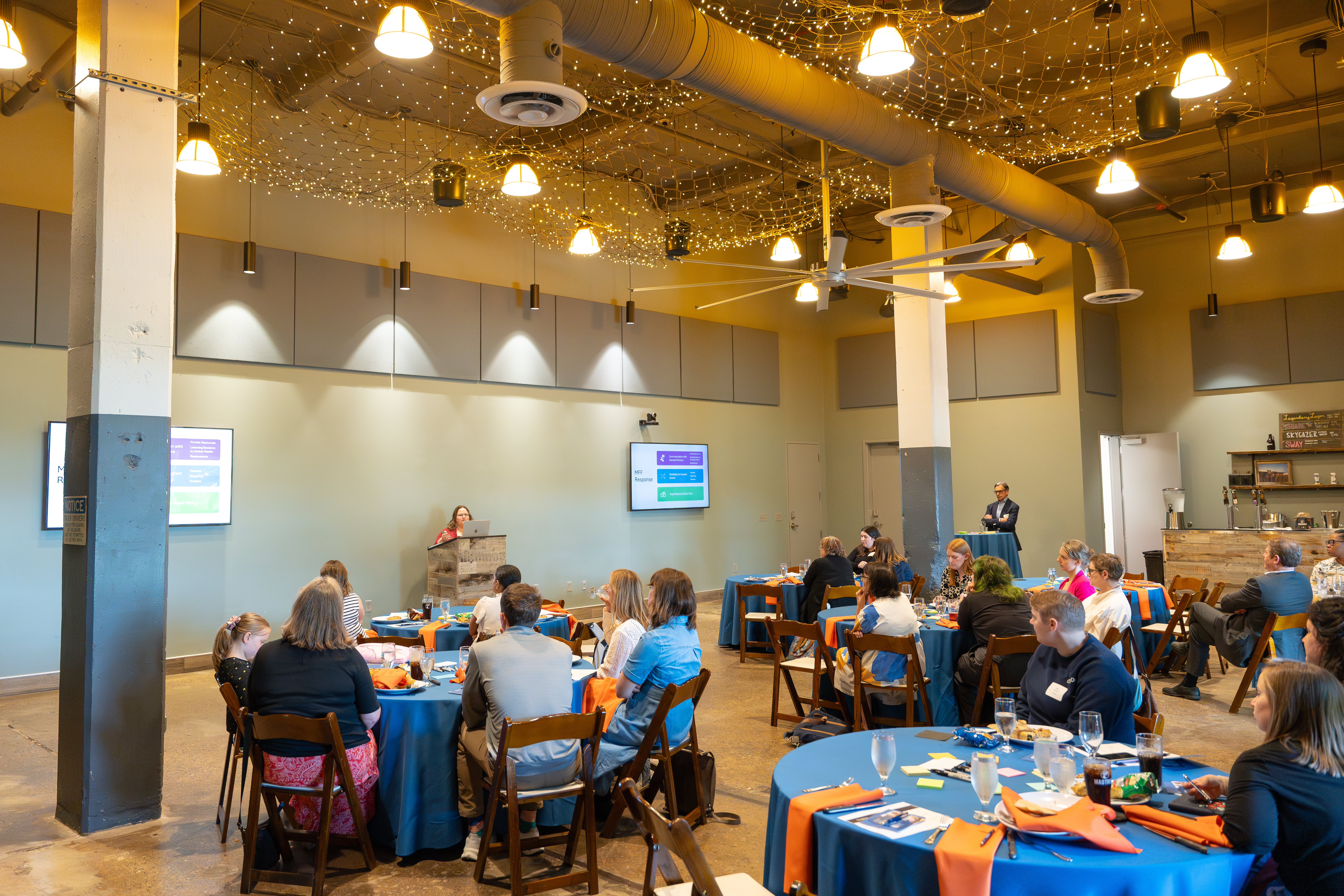
Last month, grantmakers and nonprofit leaders gathered in Cincinnati to discuss a timely and important question:
How can we adapt, evolve, or create new grantmaking practices to better meet the needs and realities of nonprofits right now?
This gathering invited participants into an open and emergent discussion. The goal was to create space for candid conversations and shared reflection. It was an opportunity for those working in philanthropy to learn from one another, surface tensions, and - most importantly - hear directly from nonprofits in the room about what’s working and what still needs to change.
While the conversation centered on how funders can meet the moment, the nonprofit leaders who joined the discussion offered honest reflections about their own experiences navigating funder relationships. Their perspective added necessary grounding to the dialogue, and served as a powerful reminder that grantmaking practices must be shaped by the perspectives of those closest to the work.

Conversations That Move Philanthropy Forward
In-person convenings provide a rare opportunity to step back from daily demands and connect more deeply with peers around shared crucial questions and challenges. They allow time to reflect—not just on what we do, but how and why we do it. When space is intentionally created for mutual learning, it can surface insights that don’t always emerge in more structured or virtual settings. These spaces also offer informal peer support during challenging times, helping participants feel less alone in their work. Ultimately, the cross-pollination of ideas across diverse people and organizations often sparks fresh thinking and innovation.
GivingData’s Lunch, Learn, and Connect events are built around cultivating deeper connections across the philanthropic sector. At these events, we engage in discussions that are both technical and broader in scope, promoting rich discussions and reflective dialogue among attendees. At the Cincinnati event, we experimented with a more emergent approach that resulted in a more open space for dialogue and idea sharing.
Leading with Trust and Flexibility
During the session, two foundations shared stories of how they are reimagining their grantmaking to better support nonprofit partners.
One foundation described how lessons learned from their grantmaking practices during the early days of the COVID-19 pandemic enabled them to create a rapid-response grant program in just a few months. The program includes flexible funding, streamlined communication, and an intentional shift toward responsiveness over rigidity.
Another foundation talked about their Building Trust and Belonging (BTB) funding opportunity that “aims to engage people and organizations in the effort to foster strong community ties and build back trust in each other that may have been lost over the years, or that may never have been meaningfully cultivated.”
The program evolved from a previous round of grantmaking - initially “packaged as programmatic grants” - after the foundation recognized that the grants functioned more as general operating support with a strong emphasis on relational practices. This realization led them to more intentionally invite grantees into the application and decision-making process, and to prioritize a cycle of continuous learning and adaptation over traditional grant reporting.
These stories grounded the conversation in real-world practices and sparked thoughtful dialogue among attendees about what it truly means to “show up” for grantees.
Here are three themes that emerged from the discussion:
1. Trust is built through simplicity and flexibility.
Many participants shared how simplifying administrative processes, like application requirements and reporting expectations, has helped build stronger, more trust-filled relationships with grantees. The lesson was clear: by making space for flexibility, funders can reduce the burden on grantees, allowing them to focus more fully on doing the work, and ultimately increasing impact.
2. Relationships are the work.
A recurring insight was that strong grantmaking is rooted in relationships, not transactions. Trust-based approaches guide funders to move beyond compliance and toward connection. That shift often requires a reimagining of what success looks like, not just in terms of programmatic outcomes, but in the quality of the relationships themselves. “Relational outcomes” are a concept that highlights how philanthropy might better understand and measure the impact of connection, belonging, and trust.
3. Experimentation and learning are essential.
There was a shared recognition that the path forward won’t be linear. Effective grantmaking today requires a willingness to test new ideas, reflect on feedback, and adapt. By prioritizing a cycle of continuous learning, funders can build a feedback cycle that allows for experimentation, honest feedback, and iteration. This is an essential practice in today’s volatile and uncertain environment, where both grantmakers and their nonprofit partners must remain agile and calibrate their actions and use of resources in response to constantly evolving realities, policies, and needs.
These themes resonated with the nonprofit attendees in the room, who spoke candidly about the challenges they face in navigating funder dynamics. They expressed a desire for more openness, clearer communication - particularly around difficult but timely topics like organizational fragility, financial challenges, and long-term sustainability. It’s this kind of transparency that can lay the foundation for funding practices that are truly responsive to real-world organizational needs.

Questions to Keep Exploring
Two questions that surfaced during the event continue to resonate:
- How are funders balancing oversight with the need for more flexible, trust-building processes?
- What might it look like to center relationships, not just results, as a measure of success?
There are no easy answers. But it is by staying in conversation, by showing up with humility and openness, and by centering the voices of those closest to the work that philanthropy can progress toward something more equitable and effective.
We look forward to continuing these conversations. To stay up-to-date on these latest insights and know when we may be hosting an event near you, subscribe to GD Insights.
Sign up for the GivingData Insights Newsletter
Receive actionable insights to streamline your grantmaking processes straight to your inbox.

